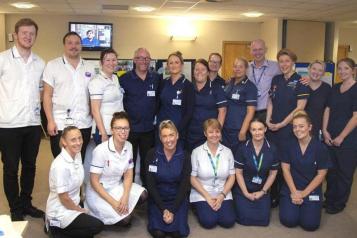What help can you get to pay for your prescriptions?

Most adults in England have to pay for their prescriptions. Since the 1st May 2024, the NHS prescription charge has risen to £9.90 (though some items, like contraceptives, are free).
Who can get a free NHS prescription?
You have the right to free prescriptions if:
- You are 60 or over
- You are under 16 years old
- You are 16, 17 or 18 years old and in full-time education
- You are pregnant or have had a baby in the last 12 months and have a valid maternity exemption certificate
- You have a continuing physical disability that stops you going out without help from another person, and you have a valid medical exemption certificate
- You hold a valid war pension exemption certificate, and the prescription is for your disability
- You are an NHS inpatient
- You have a long-term health condition. People with certain medical conditions can get free NHS prescriptions by applying for a valid medical exemption certificate (MedEx).
You are entitled to a free prescription if you or your partner receive the following benefits:
- Income support
- Income-based job seekers allowance
- Income-related employment and support allowance
- Pension credit guarantee credit
- Universal credit, and you meet the criteria.
You are also entitled to free prescriptions if you are under 20 and a dependent of someone on these benefits.
See if you are eligible for help
The Government has a five-minute online survey that will let you know if you can get free NHS prescriptions, dental treatment and eye tests.
Do you have a low income?
If you are on a low income, you may be able to receive financial help towards your prescription. The NHS have a low income scheme to help people.
The scheme covers:
- Prescription costs
- Dental costs
- Eye care costs
- Healthcare travel costs
- Wigs and fabric support.
You can apply for the scheme if your savings, investments or property (not including where you live) stay within the capital limit.
If you live in a care home, the capital limit is £23,250. For everyone else, it is £16,000.
Visit the NHS website to find out how to apply for the low income scheme and claim money back that you have already paid.
Prescription prepayment certificates
You can save money through a Prescription prepayment certificate (PPC0. This certificate lets you pay a fee upfront to cover all your NHS prescriptions, including dental, no matter how many you need.
From the 1 May 2024 costs for a prepayment certificate will rise. Costs vary depending on the duration of the certificate:
- Three months cost £32.05 and will save you money if you get more than three prescriptions in three months
- Twelve months cost £114.50 and will save you money if you get more than eleven prescriptions yearly
- If you're prescribed Hormone Replacement Therapy (HRT), you are entitled to an HRT PPC. The certificate costs £19.80, lasts 12 months, and will save you money if you get more than two prescriptions yearly. Find out more about the HRT PPC and how to apply.
You'll need an address to apply for a PPC or to the Low-Income Scheme (LIS). However, you can use a ‘care of’ or forwarding address if you don’t have a fixed address.
Find out more about Prescription Prepayment Certificates (PPC)
More information and advice
For more information and support paying for your prescriptions, check out the following resources:
- This leaflet for patients provides information on services that can help you with health costs
- NHS help with costs helpline – 0300 330 1343
- NHS website on help with costs
- Citizen's advice guidance on health costs
- Macmillan information for those living with cancer
- Age UK advice on free prescriptions for over 60s
- Carers UK guidance for carers


